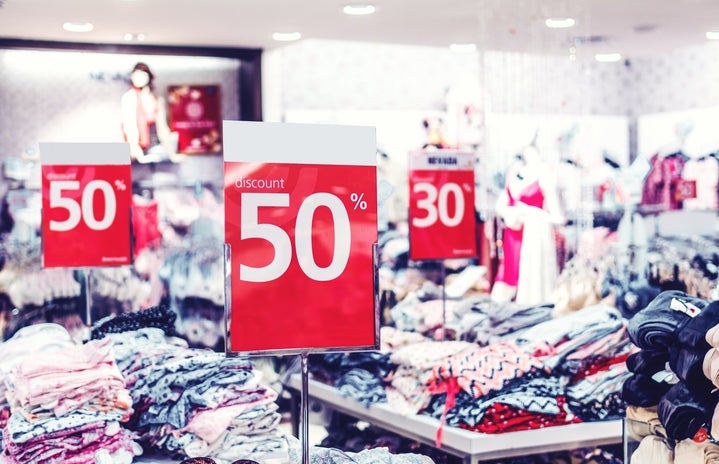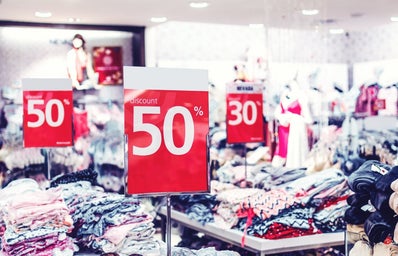At the beginning of January, as many often do, I made a promise to myself to only make purchases I deem as essential and so far, I have been successful! I included food, toiletries, and similar items within my list of essentials, with my non-essential list consisting of makeup, beauty products, and clothing. Besides wanting to save money for the boring stuff (i.e., rent, a car, etc) after I graduate, I realised that my desire for new items was causing cyclical unhappiness which was only temporarily relieved through the instant gratification of a parcel being posted through the door, that all-too common Apple Pay ping, or by tapping my card in [insert any fast-fashion retailer here].
After talking to my friends and family I realised that I was not alone in feeling this way; with social media also having a role to play in normalising impulse spending as a temporary distraction from our emotions. If you scroll on any ‘girly’ meme page, it is pretty much guaranteed there will be some post about splurging to alleviate sadness. Too often is social media simultaneously the driving force in our habits of splurging on whichever new product has been labelled the ‘holy grail’, making consumers feel like they must buy it immediately or they will regret it for eternity.
TikTok takes a massive responsibility in our constant desire to buy new things. Sat in a frozen state of doom-scrolling, which I admittedly do too regularly for a final-year student, my ‘for you page’ displays videos of hair products captioned ‘you need to buy this ASAP’, influencer hauls or their PR packages, and even live shopping events- weirdly resembling shopping channels but echoing a dystopian capitalist lure to make shopping an ever more personalised experience. Beauty standards make us want to replicate the looks of influencers, not only in what they wear but the latest surgeries the have had (undereye filler is a thing, BTW). All in all, TikTok does not feel like the app that once showed people dancing to Tiger King remixes, but now more like a toxic and personalised experience designed to lure and trap users with an endless promotion of new products.
When TikTok has successfully convinced us into buying something, we move across our phones to our shopping apps, which only intensify the desire to consume driven by TikTok. The accessibility of credit, observed through companies such as Klarna and Clear Pay, provides the option to consume without the needed money in our accounts. Although I am guilty of using Klarna myself (the pay later is very useful when ordering multiple sizes and not wanting to wait for a refund), we must consider the role credit options can play in this toxic culture of consumption, and how it can further the desire to buy.
Going into February, I am hoping to improve my lack of a spending routine. It is difficult, but some things I think are really helpful is deleting shopping apps and unsubscribing to emails. The notifications are personalised and relentless and not to mention always extremely timely. The convenience of having the app there is much easier than going onto Google, searching the site up and doing it that way, especially if you are lazy like me.
Investing in high-quality timeless clothing rather than cheap fast-fashion clothes is something I think will be useful. Besides the ethical and environmental implications, the quality of pretty much all fast fashion is not built to last, ending up in landfill.
Lastly, the 30-day rule will be my guiding principle. To avoid impulse buys, I will make a note of the item, and after 30 days, I will decide whether I truly want it or not. I hope these become a starting point for reducing spending habits and breaking out of the confines of social media’s micro trend cycles, however much we are convinced to buy into them.
Written by: Maisy Pallister
Edited by: Michele Ngue-Awane


